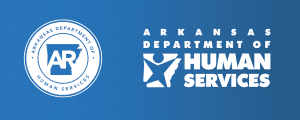September 8, 2023
Arkansas Governor Sarah Huckabee Sanders has called for a special session focusing on tax cuts, updates to the Freedom of Information Act and changes to COVID regulations.
_______________________________________________________________________________
WHEREAS: An extraordinary occasion has arisen making it necessary to convene the 94th General Assembly into extraordinary session;
WHEREAS: With the state’s financial stability, increased economic growth, healthy reserve accounts, and conservative spending policies, additional tax reductions can be enacted to provide further tax relief during this period of heightened inflation under “Bidenomics”;
WHEREAS: The rights and privileges of Arkansas citizens should not depend on their decision to vaccinate themselves or their children;
WHEREAS: A right to a normal education and lifestyle is imperative to the growth and development of our children and communities;
WHEREAS: On September 18, 2022, President Joe Biden declared that the COVID-19 “pandemic is over”;
WHEREAS: It is the position of my administration that we should protect our students’ safety, freedoms, and right to receive an education in our public schools and educational institutions, as well as the rights of citizens across the state;
WHEREAS: It is critical to protect the safety and security of students and staff while present on school campuses;
WHEREAS: There is a heightened need to protect the safety, security, and efficiency of constitutional officers and state executive branch agencies;
WHEREAS: There is a need to secure the attorney-client and deliberative process privileges within state government;
WHEREAS: There is a need to amend The Freedom of Information Act of 1967, as amended, to prevent abuse of its attorney fee provisions; and
WHEREAS: There is a need to provide clarity in the law and constitutional protections to those sentenced under Arkansas Code Annotated § 16-90-120.
NOW, THEREFORE, I, SARAH HUCKABEE SANDERS, acting under the authority vested in me as Governor of the State of Arkansas, do hereby call an Extraordinary Session of the General Assembly to convene in Little Rock on September 11, 2023, at 11:00 a.m., and I do hereby specify that the General Assembly is convened in such Session to consider, and if so advised, enact laws for the following purposes:
1. To amend the individual income tax brackets and rates to a top tax rate of 4.4% effective January 1, 2024, and following tax years; to amend the income tax brackets and rates for domestic and foreign corporations to a top tax rate of 4.8% effective January 1, 2024, and following tax years; to provide a non-refundable income tax credit for tax year 2023 up to $150 per individual taxpayer and up to $300 for married spouses filing jointly;
2. To create and transfer existing surplus funds to the Arkansas Reserve Fund Set-Aside in the Restricted Reserve Fund;
3. To prohibit Arkansas public entities from mandating COVID-19 vaccines or vaccine for variants or engaging in related coercive actions; to require the Arkansas Department of Health to maintain publicly available information on the risks of the COVID-19 vaccines; to provide an exemption in certain cases if approved by the Arkansas Legislative Council;
4. To amend the Freedom of Information Act of 1967 to protect the security of the Governor, the Lieutenant Governor, the Attorney General, the Secretary of State, the Auditor of State, the Treasurer of State, the Commissioner of State Lands, members of the General Assembly, Justices of the Supreme Court, or Judges of the Court of Appeals; to amend the Freedom of Information Act of 1967 to add protections for the deliberative process and attorney-client privilege of state level entities; To amend Arkansas Code § 12-8-108(c) to extend the Freedom of Information Act of 1967 exemption and confidentiality requirement to all duties of the state police under § 12-8-108(a); to amend the award of attorney’s fees; to require Arkansas State Police to file a quarterly report to Arkansas Legislative Council categorizing aggregated expenditures;
5. To amend Arkansas Code § 20-22-1011(a) to provide clarity for public schools, private schools, and educational institutions to keep exterior doors closed and locked during school hours apart from transition times as required in Arkansas Code § 6-21-121;
6. To amend the Philanthropic Investment in Arkansas Kids Program Act and the Arkansas Children’s Educational Freedom Account Program to provide for the provision of educational services and access to additional funding for children with disabilities under the Philanthropic Investment in Arkansas Kids Program Act, the Succeed Scholarship Program, and the Arkansas Children’s Educational Freedom Account Program;
7. To clarify that Arkansas Code § 16-90-120(e)(1) applies to offenses committed on or after July 2, 2007, but before January 1, 2024, and Arkansas Code § 16-90-120(g) applies to sentencing for offenses committed on or after January 1, 2024;
8. To confirm gubernatorial appointees as required by Arkansas Code § 10-2-113; and
9. To provide for payment of expenses and per diem of the House of Representatives and the Senate for this Extraordinary Session.
Further, this call is subject to amendment prior to the date and time at which the General Assembly shall convene.
IN TESTIMONY WHEREOF, I have hereunto set my hand and cause the Great Seal of the State of Arkansas to be affixed this 8th day of September, in the year of our Lord 2023.
Visit the Governor's page to view the official release here https://governor.arkansas.gov/news_post/governor-sanders-calls-a-special-session-of-the-arkansas-legislature/





